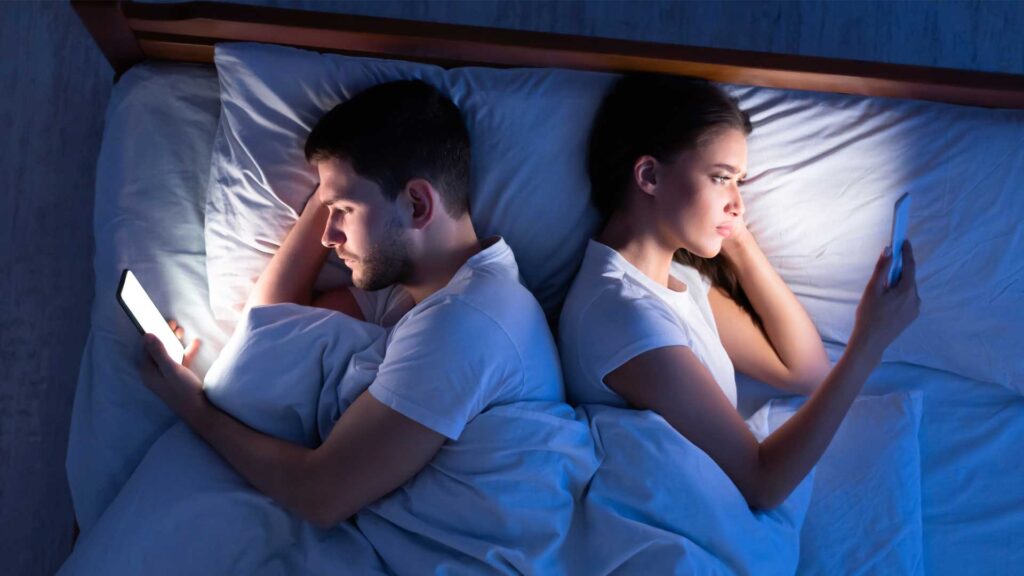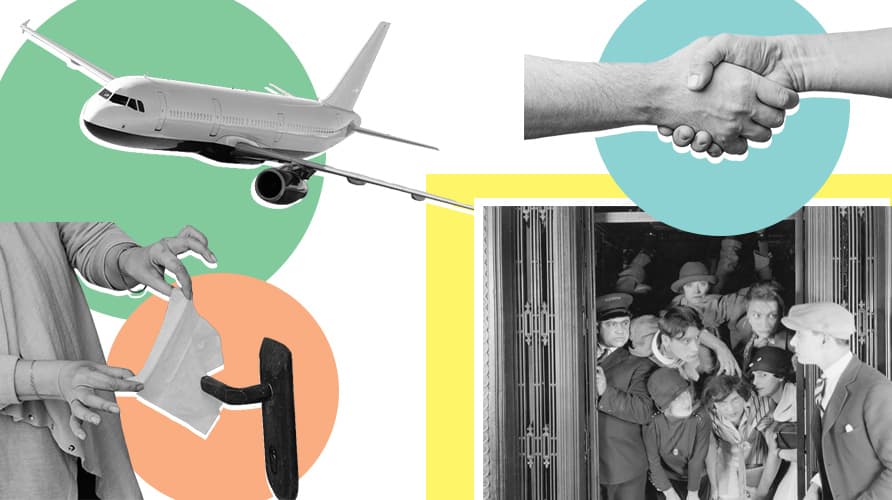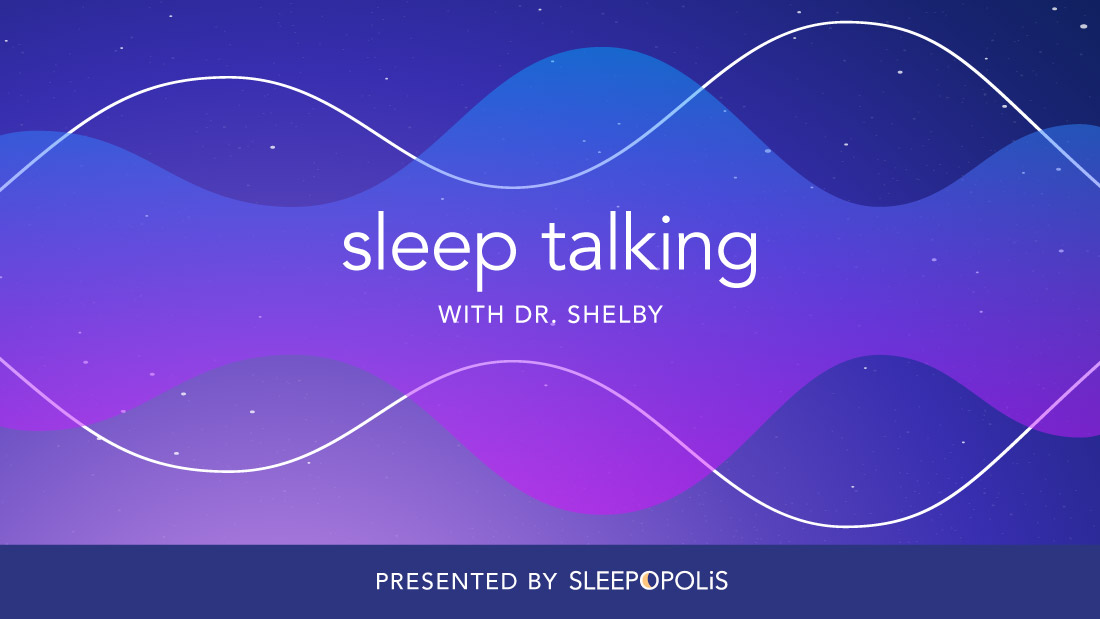
In early October, Arianna Huffington created a poll on LinkedIn asking her network how they handle their devices at night. Calling it “a great first Microstep for sleep,” the media mogul-turned-sleep-evangelist asked,
“Do you keep electronic devices (phones, tablets, etc.) out of your bedroom in the evening?”
When the poll closed, over 14,000 people responded, and a whopping (and unsurprising) 49 percent said they “could never” keep devices out of their bedrooms at night.
Sifting through the comments, we found a wide range of opinions on the topic.
While some folks clearly understood that using devices at night can deliver a blow to their sleep quality and duration, others offered myriad reasons why a complete disconnect isn’t an option.
Quite a few people indicated that with landlines going the way of the dinosaurs, their smartphones are close in case of emergencies, and perhaps just as many said, their phones are also their alarm clocks. More than a few said their phones are tools to help them sleep — a la meditation music and soothing sounds, and e-books. And at least one person said scrolling through their phone is a Plan B if they don’t like the movie/show their “remote hog” spouse has chosen.
In addition to excuses, err… reasons for keeping their phones nearby, many people shared their favorite workaround — using the Do Not Disturb option.
Why Is It So Hard to Disconnect?
Lauri Leadly, CCSH, RPSGT, clinical sleep educator, founder & president at Valley Sleep Center, says, “The question of whether to keep your phone in the bedroom at night or not is a tricky one. It seems we either commit to the “powering down” rule 100 percent or not. There isn’t an in-between.”
Leadly adds that this is undoubtedly a result of an “always on” culture and maybe a little FOMO.
“It used to be that the phone call in the middle of the night was for “emergency news” only. But now, social media, work, and even boredom have people on their phones all the time, no matter the hour.” Leadly notes that culturally, we’ve moved to a place where we feel we need to be available all the time. Whether it’s to keep up with a 24-hour news cycle or the information that’s constantly refreshing on our social media feeds, we’re there for it. She also adds, “Most often — nothing is that important.”
Noting that she also keeps her phone at her bedside, Leadly says she uses Do Not Disturb features that will help her get a good night’s sleep. “I only receive calls from my kids past a certain hour, and all news and social notifications are shelved until after my wake time in the morning.”
The one exception to the rule? Emergency workers, doctors, and similar professions.
“Unless you have the kind of job that requires 24-hour on-call service, there is no reason to allow sleep disruption by phone. If a coworker, friend, or even a family member is up at 2 a.m. emailing, texting, and messaging content that can wait until morning, there’s no reason why you have to be available to view it or even respond to it.”
What Is Good Sleep Hygiene?
“Sleep hygiene is comprised of different practices that help promote good sleep and enable you to function with optimal alertness and energy during the daytime,” says Leadly, adding that “developing good sleep habits is a great practice for both children and adults.”
According to Leadly, good sleep hygiene includes:
- Maintaining consistent sleep and wake times every day (this includes weekends and holidays)
- Developing a relaxation routine that you do each night before bedtime
- Only using your bed for sleep and sex
- Avoiding large meals too close to bedtime and allowing your body at least 3 hours between your evening meal and sleep
- Avoiding daytime naps
- Avoiding caffeine, nicotine, and alcohol before bedtime
- Exercising regularly and completing your workout by 2 p.m.
- Powering down devices at least 1 hour before bedtime
What Do Your Electronics Have to Do With Sleep Hygiene?
“The human body has an internal clock that regulates its circadian rhythm – the body’s natural wake and sleep cycle, and light plays a significant role in aligning circadian rhythms,” says Leadly. (1) “While all visible light can impact our circadian rhythm, blue light has the most considerable effect — it suppresses the body’s release of melatonin (aka the sleep hormone), which is incredibly unhelpful at night when our primary goal is to get to sleep. (1) Exposure to blue light in the evening can trick the brain into thinking it’s still daytime and leave us feeling too alert to feel tired and fall asleep.” (1)
So, where is the blue light coming from? You guessed it, your devices. Leadly says, “People are increasingly exposed to vast amounts of blue light before bedtime, courtesy of their phones, laptops, tablets, e-readers, and TVs.” (1)
Tips to Help Mitigate the Effects of Blue Light at Night
If you’re one of the 73% who struggle with letting go of your devices at night. Leadly offers the following tips and best practices to help combat the effects of blue light.
- Practice the 20/20/20 strategy. When using a device that emits blue light, make it a point to stop every 20 minutes to peel your eyes from the screen, focus on objects about 20 feet away, and study them for about 20 seconds before returning to your work.
- Keep your eyes moist. Keeping your eyes hydrated with a humidifier or eye drops is an excellent way to keep them from becoming dry or irritated while using blue light devices.
- Take advantage of blue-light-blocking lenses. With the increased usage of technology, it’s now common to purchase lenses specifically for protecting your eyes when using blue light devices. (1)
- Adjust the blue light on your screens. Many devices have the option of “night mode,” which allows you to turn off blue light and sets your screen to warmer tones. This is especially useful for those who surf the web in bed.
- Minimize screen time. Simply minimizing the time you spend in front of the screen each day is the best way to reduce blue light from your life. Read a book, go for a walk, make a delicious meal, and pry your eyes away from the screen for a few more hours than you normally would. Then, see how fast you fall asleep.
- Adjust backgrounds to warmer colors. Consider changing backgrounds on all devices from bright white to warmer colors to help filter out the blue light.
For those who completely want to disconnect, Leadly suggests leaning into some non-tech activities before bed, like:
- Reading a book
- Praying or meditating
- Journaling
- Jotting down your “to-dos” for the next day to get them off and out of your mind.

How Does Anxiety Affect Your Sleep?

Dr. Joseph Krainin Turns Your Bedroom Into Your Own Personal Sleep Lab

An Interview With Layla Sleep Founder Akrum Sheikh

Sleepopolis Has Launched a Podcast! Check Out “Sleep Talking With Dr. Shelby”
Sources
1. Wahl S, Engelhardt M, Schaupp P, Lappe C, Ivanov IV. The Inner Clock-Blue light Sets the Human Rhythm. J Biophotonics. 2019;12(12):e201900102. doi:10.1002/jbio.201900102
Leadly, Laurie. Author interview. October 23, 2024.